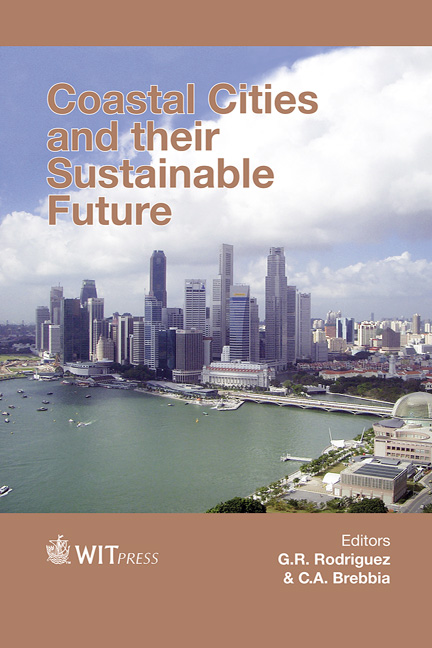Coastal Cities and their Sustainable Future
Edited By: G.R. Rodriguez, Universidad de Las Palmas de Gran Canaria, Spain and C.A. Brebbia, Wessex Institute of Technology, UK
Price
$298.00 (free shipping)
ISBN
978-1-84564-910-4
eISBN
978-1-84564-911-1
Pages
350
Transaction Series
WIT Transactions on The Built Environment
Transaction Volume
148
Published
2015
Format
Hardback
This book contains papers presented at the International Conference on Coastal Cities and their Sustainable Future. First held in 2015, the conference evolved from a series of conferences on coastal processes, sustainable development, and city sustainability that began in 1992.
The growth of world population and the preference for living in coastal areas has resulted in their ever-increasing development. Coastal areas are the most common destination which brings in economic growth but implies additional urban development and increases the need for resources, infrastructure and services. The activities common to coastal cities require the development of well-planned and managed urban environments, not only for reasons of efficiency and economics, but also to avoid inflicting environmental degradation and the resultant deterioration of quality of life and human health. To resolve these problems it is necessary to consider coastal cities as dynamic complex systems which need energy, water, food and other resources in order to work and generate diverse activities, with the aim of offering a socioeconomic climate and better quality of life. As a consequence, it is essential to integrate the management and sustainable development of coastal cities with science, technology, architecture, socio-economics and planning all collaborating to provide support to decision makers. Because of the complex nature of such integrated planning, the support of computational models is essential in order for planners to explore various options and to forecast future services and plans. These models seek to simulate the dynamic of coastal cities leading to potential solutions.
The multidisciplinary papers in the book examine some of the possible models and potential solutions. Contents include topics such as: Planning, Development and Management; The Coastal City and its Environs; Coastal Flooding; Heritage Issues; Tourism; Socio-Economic Issues; Slow Mobility along Coastlines and Waterways; Beaches and Port Areas; Waves.








